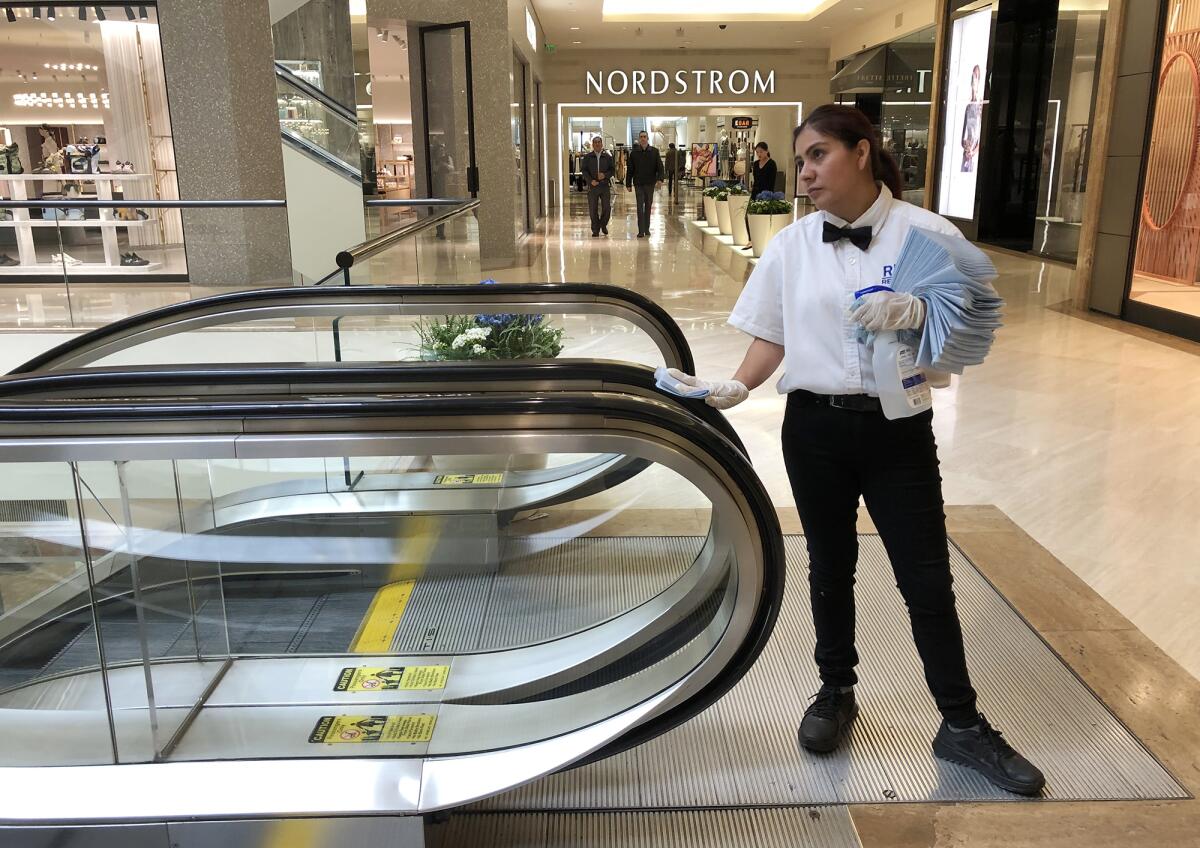Costa Mesa makes cuts ahead of projected $10-million-plus loss due to coronavirus

- Share via
Few visitors and shuttered businesses mean more than a changing landscape for Costa Mesa — it could mean a loss of almost $20 million in tax revenue for the next three months. To make up for the unexpected budget shortfalls, the Costa Mesa City Council voted unanimously on Tuesday to make some cuts to the city budget and defer some costly capital improvement plans, to avoid dipping heavily into the city’s reserve funds.
City staff projected the coronavirus pandemic could cause a loss between $10 million and $20 million through the rest of the fiscal year, which ends June 30.
“Even though it’s been a short time, between 45 and 60 days in duration, the economic impacts and the magnitude of the challenges we’re facing now financially because of the crisis are unprecedented,” City Manager Lori Ann Farrell Harrison said.
The projections — a $10-million loss in an optimistic scenario and $18.5 million or more in a grimmer scenario — are a result of sudden drops in sales tax, hotel tax and miscellaneous city fees and citations.
One of the city’s largest economic drivers, the internationally-renowned shopping center South Coast Plaza, closed over a month ago. Tourism has dropped dramatically — hotels are at only 10 to 15% occupancy, the city’s budget and purchasing manager Carol Molina said.
Most of the loss would dent the city’s General Fund, which contributes heavily toward public safety and other city services. Sales taxes are projected to decline anywhere from nearly $5 million to $10.6 million; hotel taxes from $2.6 million to $3.5 million and miscellaneous fees from $2.5 million to $4.4 million.
To account for the projected losses, the council approved several cuts, many of which staff have already made, to eliminate nonessential expenses, limit hiring and cut travel, conferences and training budgets. The city will also defer $6 million in capital improvement projects, including the city’s storm-water drain system, City Hall’s elevators and citywide street improvements.
“If we don’t cut every little bit that we can cut right now, next time we’re going to be cutting all the way down to the bone,” Councilwoman Sandy Genis said. “Whoever’s going to be here a year from now, they’re going to have a big mess on their hands if we don’t take every action that we possibly can.”
To date, the city has spent about $1 million — at least half devoted to staff time and overtime — in responding to the coronavirus pandemic, Molina said.
Costa Mesa was already toeing the line on its reserve budget; it began the fiscal year July 1 with about $455,000 budgeted from reserves. But at the city’s midyear budget update, the council learned that sales taxes were rolling in $2 million more than expected. Council members have emphasized repeatedly throughout the year the need to be conservative with costs, to resist using money from the reserves.
Still, Harrison said if lost taxes amount to more than $18.5 million, the city may need to prepare to dip into disaster reserves. More cuts would likely impact staff, she said.
“[There is] no bigger disaster in our lifetime than this one,” Harrison said.
The council’s budget assessment follows a week of protests across the country, including next door in Huntington Beach, from residents eager to reopen businesses and restart the economy.
“Even though we’re faced with these economic circumstances, it’s still in our economic best interest not to have an outbreak of COVID,” Mayor Pro Tem John Stephens said. “These numbers would be worse and be more permanent band be deeper if we had an outbreak of COVID. ... Our North Star here is to keep our community safe, and that’s in our best interest from a health and economic standpoint.”
All the latest on Orange County from Orange County.
Get our free TimesOC newsletter.
You may occasionally receive promotional content from the Daily Pilot.




